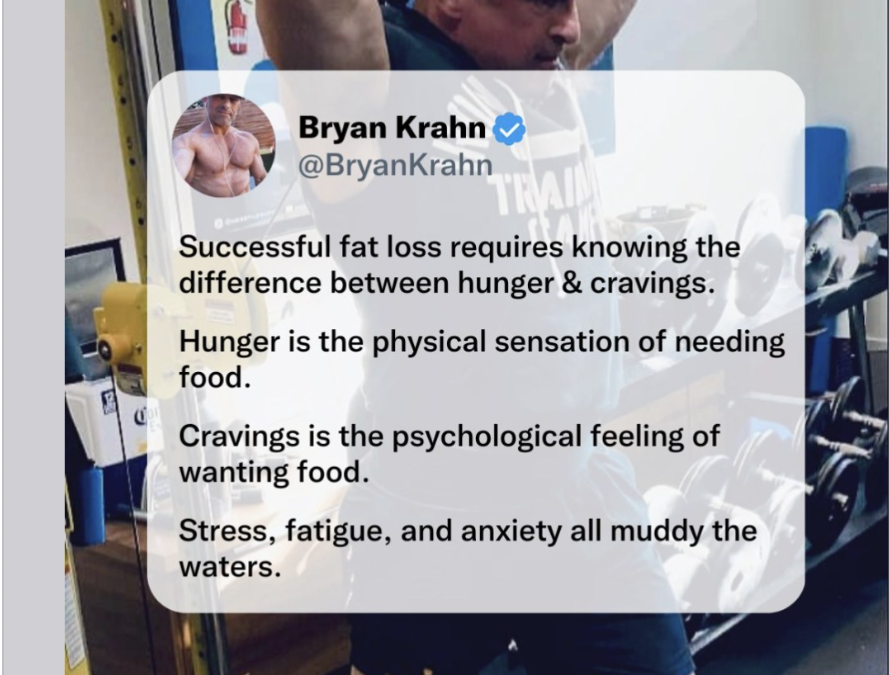Are you hungry, or bored?
Understanding the difference between hunger and cravings can help you make healthier choices and maintain a balanced diet.
Hunger is the physical sensation of needing food, usually accompanied by symptoms such as stomach growling.
Cravings, on the other hand, are the psychological feeling of wanting food and can be triggered by emotions as well as external stimuli.
So basically hunger is real and cravings are bullshit?
Sorry, it ain’t that simple. But it’s important to know the difference because HOW you respond to them can significantly impact your overall health and fitness goals.
When you’re hungry, your body will send you signals like stomach growling, feeling weak or dizzy, and a general sense of emptiness.
Hunger also tends to occur at regular intervals, such as every 3-4 hours, while cravings can occur at any time.
Cravings on the other hand are often triggered by emotions, like stress, boredom, or loneliness, as well as external stimuli, such as seeing or smelling food.
And if you’re experiencing a sudden urge to eat outside your regular eating schedule, it’s more likely to be a craving than genuine hunger.
Continually feeding your cravings almost always leads to overeating, and it can be a vicious cycle to break. Especially if you feel stress (or shame or annoyance) at having missed the cues.
Here are 3 tips to help you break the cycle:
1. When you experience a craving, delay giving in to it for 10-15 minutes. During this time, distract yourself with an activity that you enjoy. The key is to do something that takes your mind off the craving.
2. After 10-15 minutes, reassess your hunger level. If you’re actually hungry, eat a healthy snack or meal. If the craving has passed or diminished, you’re on the way to breaking the cycle.
3. If you’re still experiencing a craving after delaying gratification, choose a healthy alternative to the food you’re craving. E.g. if you’re craving something sweet, try eating a piece of fruit.
While it’s important to listen to your body, remember that it’s not always the most reliable narrator—sometimes it takes a little detective work to figure out what it’s really trying to tell you.
– Coach Bryan

